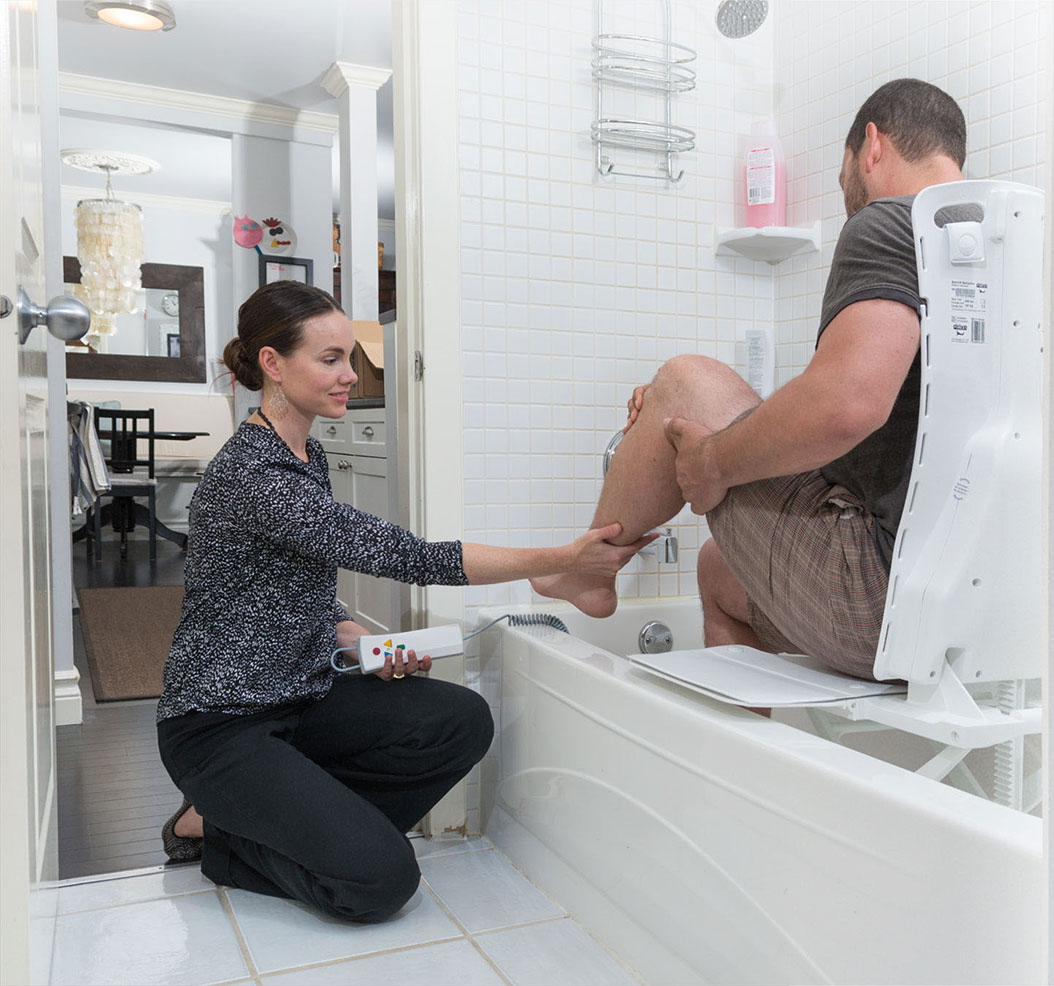WHAT IS OCCUPATIONAL THERAPY?
Occupational therapy is a Master’s level regulated healthcare profession that focuses on promoting good health and wellbeing. Its primary goal is to help individuals develop necessary skills that maximize their ability to participate in the activities of daily life. This in turn greatly improves the quality of life for patients. Occupational therapists use evidence-based practices to conduct assessment and formulate interventions that develop and improve the activities, or occupations, of individuals.
Occupational therapy helps to resolve problems that interfere with a person’s ability to conduct everyday “occupations”. For example,
Life: hygiene, dressing, eating, food preparation;
Work: employment, school; and
Play: hobbies, sports, social activities.
Here are some examples of the types of activities defined as “occupations”:
Activities of daily living (ADLs)
Activities that are required to provide basic care for oneself. These actions are instrumental to maintaining health, well-being, and social participation.
Household:
|
|
|
Work:
|
|
|
Play:
|
|
|

What is a Community Occupational Therapist?
Community OTs are occupational therapists who meet and work with clients within their own communities. This enhances the client’s ability to rehabilitate in the environment to which they will return.
Occupational Therapists are:
- University-educated health professionals who apply evidenced-based knowledge and skills to assess and recommend individualized treatment plans to help people maximize their quality of life
- Trained to understand the medical, physical, and psychosocial restrictions of an injury that can impact functionality
- College-regulated medical professionals.
Occupational therapists often work closely with other healthcare professionals:
| Physical therapists | Speech therapists |
| Nurses | Social workers |
| Clinical psychologists | Audiologists |
| Assistive technologists | Medical Doctors |
Occupational therapists helps people to more fully participate in life’s activities. OTs work with people of all ages and treat a wide variety of injuries including physical, cognitive, emotional, and psychological.

The Occupational Therapy Process
Assessment
The OT process is founded on initial and repeated standardized assessments. This provides data that informs the OT whether a rehabilitation plan might be modified. Assessment includes a series of client and family interviews, and observing the client in a variety of settings. It also includes conversations with other significant people in the client’s life to more fully inform the OT.
Planning
The OT then reviews the results of the assessments to develop short and long-term rehabilitation plans, ensuring that the plan is relevant to the individual client’s needs. This includes consideration of the person's stage of development, their personal habits and roles, as well as personal lifestyle preferences.
Intervention
Occupational Therapy Intervention focuses on people-oriented programs designed to enable the performance of everyday tasks and the successful adaptation of the client’s environment – where they live, work, and play. Examples of OT intervention include teaching new techniques and equipment technology to facilitate greater independence and reduced environmental barriers.
Cooperation
OTs recognise the importance of teamwork. Cooperation and coordination with other professionals, families, caregivers, and volunteers are important in the realisation of the holistic approach. There are often many stakeholders in the rehabilitation process, the patient being the biggest.
Occupational Therapy can help you maximize your quality of life, support recovery from a wide variety of injuries, and adapt to short and long-term mental and physical disabilities. It is an incredibly valuable practice covered under many extended health-care providers.
If you, or a loved one, are experiencing difficulties returning to everyday activities due to an injury, illness or other event, consult with your doctor to determine if occupational therapy is an appropriate course of treatment for you.
© RAINCOAST COMMUNITY REHABILITATION SERVICES INC











